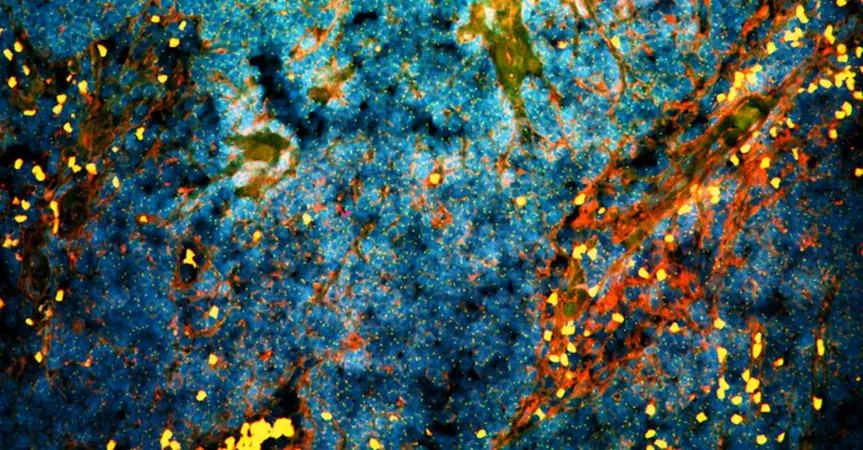
Shocking Discovery: Simple Supplement Could Combat Prostate Cancer Cells!
2024-12-03
Author: Ken Lee
Introduction
Recent research has unveiled an exciting potential cancer-fighting agent related to a common nutrient: Vitamin K. While this vitamin, commonly found in dark leafy greens, is known for its essential role in blood clotting and bone health, a specific precursor called menadione has shown remarkable promise in the fight against prostate cancer, a disease gripping thousands of men worldwide.
Groundbreaking Trials
In groundbreaking trials conducted by scientists at Cold Spring Harbor Laboratory (CSHL), menadione exhibited the unique ability to disrupt the survival of prostate cancer cells, effectively causing them to self-destruct. This discovery could bring hope to men who face aggressive forms of this deadly disease.
Prostate Cancer Challenges
Prostate cancer is notorious for its lethal impact among men, and treatments have often produced mixed results. For instance, a past study involving 35,000 participants sought to determine whether vitamin E could serve as a beneficial treatment. Surprisingly, the trial found that men taking the antioxidant were more susceptible to prostate cancer, prompting researchers to consider whether a pro-oxidant like menadione could yield different outcomes.
Mechanism of Action
In the innovative study with mice, scientists observed that menadione targeted and depleted a lipid known as PI(3)P. This lipid acts as a crucial identifier for tumor cells, facilitating their recycling process. When PI(3)P is eliminated, the tumor cells can no longer process incoming materials, leading to a catastrophic buildup that ultimately causes them to burst.
Research Insights
Professor Lloyd Trotman, who led the research, described the process metaphorically: 'Imagine a transport hub like JFK Airport, where if all incoming flights are de-identified, there’s no way to know where to send them next. As new flights keep arriving, the hub becomes overwhelmed, leading to a catastrophic explosion.'
Future Studies
The implications of this research are profound. Trotman also expressed his eagerness to conduct further studies to see if men diagnosed with early-stage prostate cancer might benefit from incorporating this supplement into their treatment regimen. 'We’re particularly interested in men who, following biopsies, have received early diagnoses of the disease. We’re hopeful that introducing menadione could significantly slow down the progression of cancer,' he stated.
Broader Potential
Additionally, recent reports highlight menadione's potential in combating other conditions, such as myotubular myopathy, a rare and fatal genetic disorder affecting young boys. With more research, menadione could become a powerhouse in addressing multiple health challenges, not just prostate cancer.
Conclusion
As excitement grows within the scientific community, the search continues for safe, effective treatments that could transform the landscape of cancer care. The simple nutrient we often overlook could hold the key to life-saving therapies! Stay tuned for more updates on this revolutionary discovery!

 Brasil (PT)
Brasil (PT)
 Canada (EN)
Canada (EN)
 Chile (ES)
Chile (ES)
 España (ES)
España (ES)
 France (FR)
France (FR)
 Hong Kong (EN)
Hong Kong (EN)
 Italia (IT)
Italia (IT)
 日本 (JA)
日本 (JA)
 Magyarország (HU)
Magyarország (HU)
 Norge (NO)
Norge (NO)
 Polska (PL)
Polska (PL)
 Schweiz (DE)
Schweiz (DE)
 Singapore (EN)
Singapore (EN)
 Sverige (SV)
Sverige (SV)
 Suomi (FI)
Suomi (FI)
 Türkiye (TR)
Türkiye (TR)